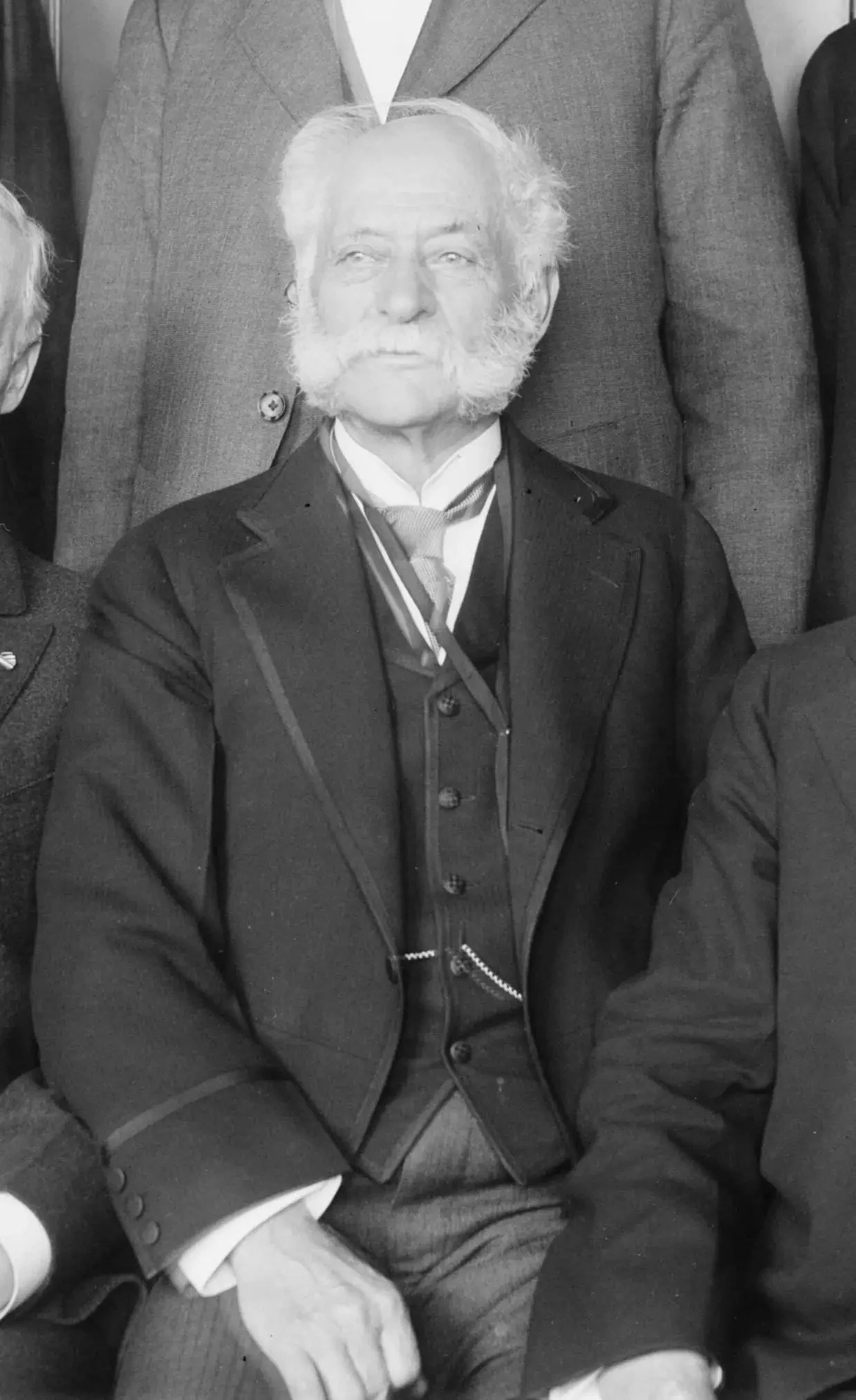Putting the Touch on The Pickle Man
Walter Clippinger needed money. Lots of it. As he freely admitted, every $1 donation to Otterbein’s cash-thirsty operations was a heartfelt act of generosity. However, the real funding came in big chunks. Millionaires could expect a respectful handshake from the president while the other hand was extended in need. One of Clippinger’s “marks” was the Pickle Man, aka H. J. Heinz.
A German immigrant’s son, Henry J. Heinz (1844-1919) rose to fame as the most recognized manufacturer of condiments. Headquartered in Pittsburgh, his empire boasted factories all over North America and eventually, the world. Heinz never had a plant in Westerville. His connection to Westerville and to Otterbein comes not through his work with pickles and tomatoes, but in one of his charitable activities, the Sunday School movement.
Selling pickles, ketchup, and the other “57 varieties” that Heinz used so effectively in his advertisements, he became fabulously wealthy. Wealth brought power, but unlike many contemporary rich, H. J. Heinz, put much of his dough into charitable causes. Heinz was instrumental in the passage of the Pure Food and Drug Act of 1906; he created a foundation that to this day guides charitable giving; and financed several religious causes.
One of his religious charities was The International Sunday School Association. Heinz was Chairman of this group, and it was through the Association that he met Walter G. Clippinger. Clippinger served as the Ohio branch of the Sunday School group starting in 1914. While the Otterbein president had to divide his time between OU and the Sunday School work, he also sensed a good tandem fundraising scheme. After all, hefty donations could work wonders.
“Prexy” was realistic. He knew that Heinz had deep pockets, but they must be carefully opened, not smashed. Writing to his favorite millionaire, Sarah B. Cochran, he intoned:
Wouldn't it be a grand thing if we could get him to give us forty or fifty thousand dollars for just such an enterprise![1]
But Clippinger was nothing if not cautious:
I am very sure that he [Heinz] will do nothing financially just now but I think he is going to take it under advisement for future action.[2]
In a letter to his friend Noland R. Best, he was quite forthright. Heinz was a target, if not for cash then perhaps an endowed professorship. He had,
. . . to open the way to the heart of Mr. H. J. Heinz, the pickle man, to ask him for the endowment of just such a chair. . . .[3]
Meanwhile, mutual friends in Pittsburgh were making introductions. Heinz wrote to a friend:
You were perfectly right in calling to my attention the request made by your friend, Prof. Clippinger, the President of Otterbein University, at Westerville, O. . . . It is not unlikely that your friend [Clippinger] has learned of the subscription I recently made to the University of Pittsburgh. . . . , [but] I shall need to wait awhile before I replenish my deleted purse.[4]
Heinz and Clippinger had a direct exchange of letters a year later. One of the controversies in the Sunday School world was whether cities and towns should have Sunday School buildings free from places of worship. Heinz waffled a bit; he was not opposed to the idea, but wanted his native Pennsylvania to be first:
Had the Sunday School forces of Ohio enjoyed your leadership a few years ago, your State might have been the first to claim a Sunday School building but I know you will be generous enough today that such an honor ought to go properly to the old Keystone state.[5]
In other words, Heinz was exhibiting home state patriotism in his otherwise gentle refusal to help out.
Prexy Clippinger never got money from Heinz. But he shed no tears; in the letter to Nolan Best, he concluded:
If I fail to touch Mr. Heinz, I think I shall try to find my way to John Wanamaker.6
Whether Wanamaker, a department store magnate and later U. S. Postmaster General, would have been more likely to give than Heinz the Pickle Man is unknown. But in this case at least, Clippinger’s formidable arm twisting turned up nothing, not even a gherkin.
- Alan Borer
Henry John Heinz, 1917
[1] Walter G. Clippinger ro Sarah B. Cochran, May 23, 1914. Otterbein University Archives, Presidents Papers, Box 81, File 3.
[2] Ibid.
[3] Clippinger to Nolan J. Best, February 12, 1914. Box 82, file 2.
[4] H. J. Heinz to “Mr. Laurence,” March 2, 1814. Box 81, File 1.
[5] H. J. Heinz to Walter G. Clippinger, July 6, 1915. Box 78, file 3. 6 Clippinger to Best, ibid.

